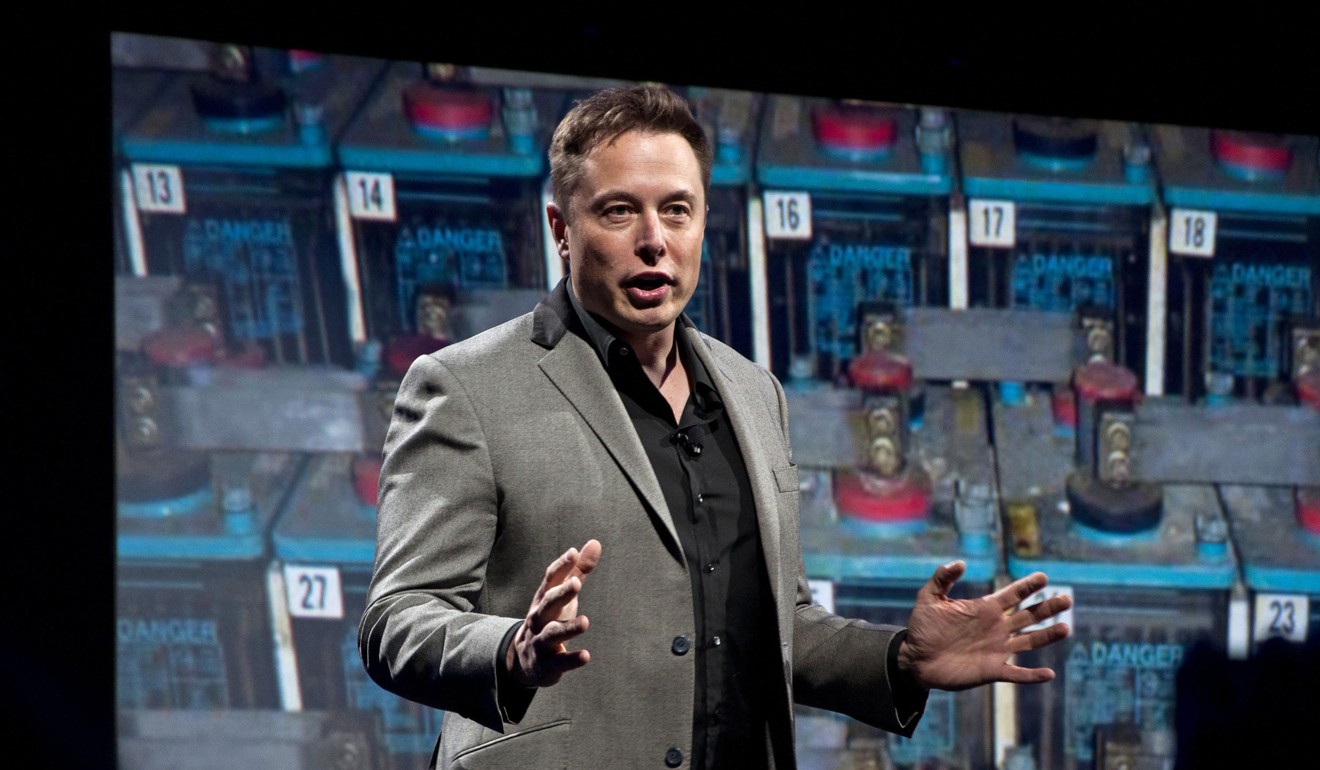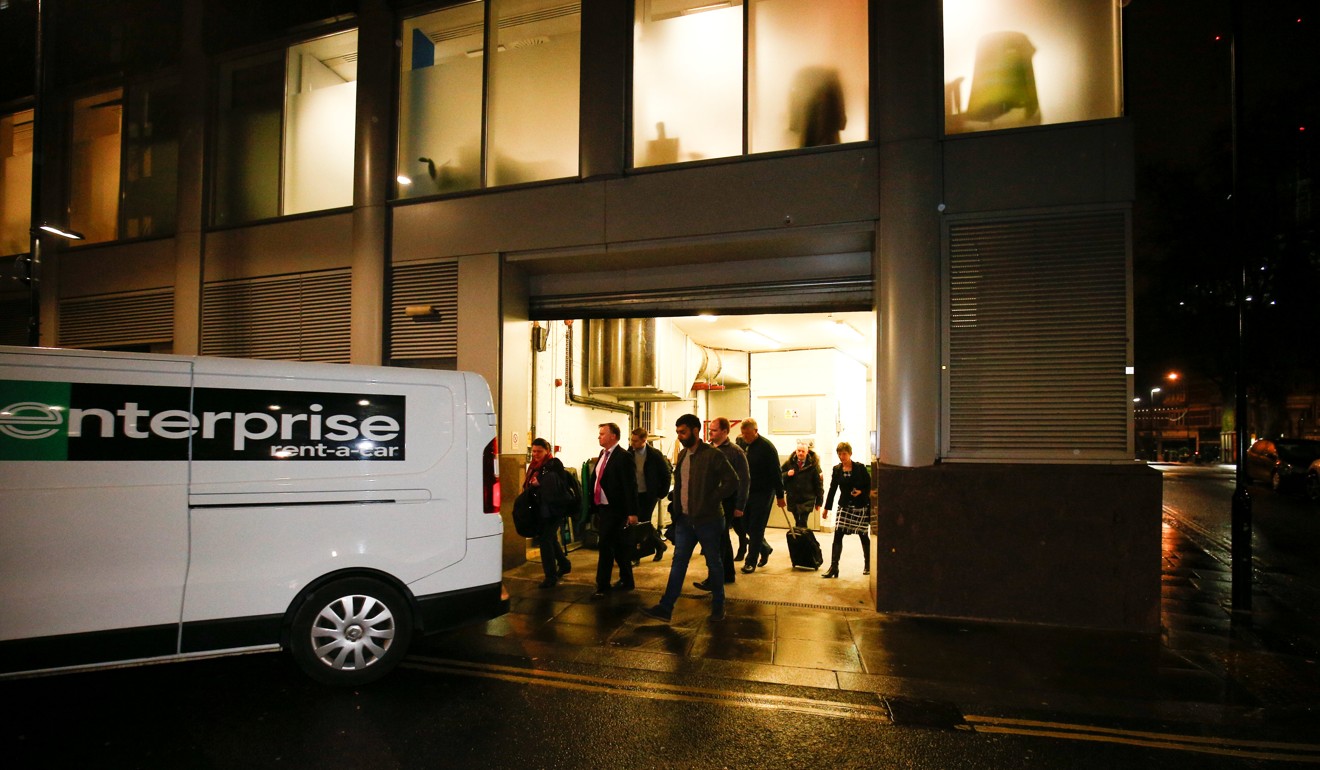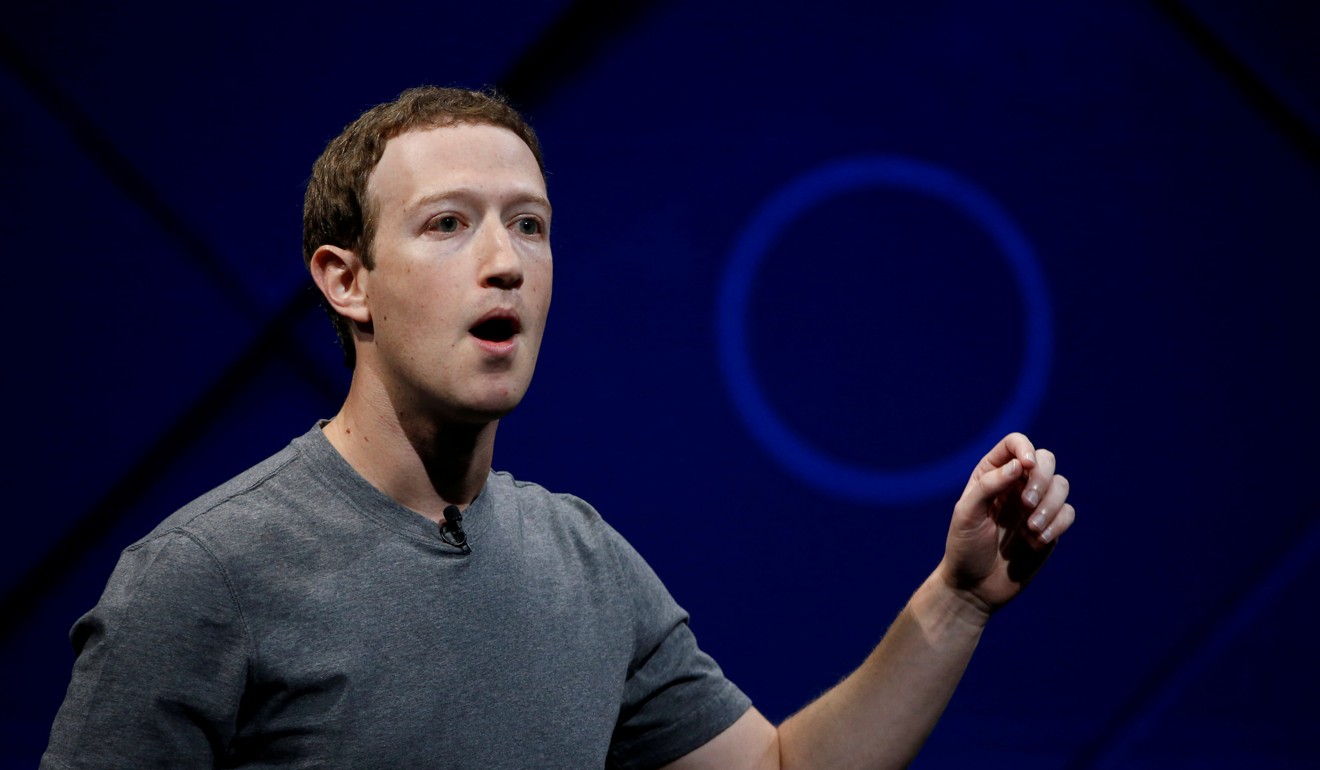What’s Facebook?
— Elon Musk (@elonmusk) March 23, 2018
‘What’s Facebook?’ Mozilla and Tesla take pause from social network as boycott gathers steam
The company’s stock price shed 14 per cent and chief executive Zuckerberg admitted to betraying users after news broke of Cambridge Analytica data harvesting scandal

Mozilla, Tesla and other companies are distancing themselves from Facebook following revelations of a major leak of user data to political consultants associated with the 2016 Trump campaign.
While the actions will not likely be permanent and will not have much of an effect on Facebook’s bottom line, they are the latest fallout the social media giant has to contend with from the ever-spiralling scandal – along with a tumbling stock price and a #deletefacebook movement.
“We’re taking a break from Facebook,” Mozilla said in a blog post on Wednesday. The company, which created the Firefox web browser, said it is “pressing pause” on its Facebook advertising and will not be posting on its Facebook page. But it did not delete its page and said it will consider returning if Facebook takes stronger actions to protect users’ data and improves privacy settings.
German bank Commerzbank also said it was putting Facebook advertising “on hold” as it evaluates data security. And Sonos, which makes speakers and other electronics, said it is pulling advertising from Facebook, Instagram, Google, and Twitter for a week.
Instagram’s probably ok imo, so long as it stays fairly independent. I don’t use FB & never have, so don’t think I’m some kind of martyr or my companies are taking a huge blow. Also, we don’t advertise or pay for endorsements, so … don’t care.
— Elon Musk (@elonmusk) March 23, 2018
We’ve never advertised with FB. None of my companies buy advertising or pay famous people to fake endorse. Product lives or dies on its own merits.
— Elon Musk (@elonmusk) March 23, 2018
Elon Musk, meanwhile, made waves, saying in a Twitter exchange that he would take down the Facebook sites for his companies Tesla and SpaceX.
“What’s Facebook?” Musk quipped rhetorically in an exchange on Twitter.
As of Thursday afternoon, the sites appeared to be inactive. Tesla and SpaceX did not respond to a request for comment.
While the actions are likely temporary, they are one more piece of the growing headache for Facebook since news of the leak broke a week ago.
It has faced criticism because chief executive Mark Zuckerberg and chief operating officer Sheryl Sandberg did not speak out until five days after the story broke.
Belatedly speaking out about the harvesting of Facebook user data by the British firm linked to President Donald Trump’s 2016 election campaign, Zuckerberg admitted to betraying the trust of its more than two billion users, and promised to “step up”.
The company’s stock price shed 14 per cent of its value this week. And the grumblings by users, and now, businesses shows no sign of abating.

“The Cambridge Analytica scandal, like many recent headlines coming out of Silicon Valley, raises questions about whether Big Tech is doing enough to balance its own interests with one of its biggest responsibilities: safeguarding your privacy,” Sonos wrote in a blog post.
But Facebook downplayed the actions by the businesses.
“Most of the businesses we’ve spoken with this week are pleased with the steps we’ve outlined to better protect people’s data, and they have confidence that we’ll respond to these challenges and become a better partner and company as a result,” the company said in a statement when asked about the advertiser defection.
The fact is, most advertisers need Facebook as a platform because its reach is so great, so any break is likely to only be temporary, said Allen Adamson, founder of brand marketing consultancy Metaforce.
“Companies can take a short-term hiatus to get some positive spin in the market, but there’s no other alternative for digital marketing today,” he said. “If you don’t use Facebook, the other options are not great.”

With Facebook mired in the crisis, the rest of Silicon Valley is also looking to come to terms with the dark side of its data-driven business model where tech titans have mined fortunes from what people reveal online. And there are signs the crisis could spread to other internet firms that have made no secret about using what they glean from digital data for targeted advertising.
“It is Facebook this week, but it could be others,” said tech industry analyst Rob Enderle.
“At the very least, this is the common problem across the tech industry.”
As digital lifestyles increasingly take root around the world, some have pointed out that Facebook is just one of many firms that mine data for profit – albeit the most successful, along with Google.
Advertisers need Facebook much more than Facebook needs any one, or thousand, advertisers
“Phones, apps, and the web are so indispensable to our daily lives – a testament to the benefits they give us – that we’ve become a captive audience,” the non-profit Centre for Humane Technology said.
“With two billion people plugged into these devices, technology companies have inadvertently enabled a direct channel to manipulate entire societies with unprecedented precision.”
Early Facebook investor Roger McNamee argued in a USA Today opinion piece that “Russia never would have been able to conduct information warfare against the United States” in 2016 without the social network as well as Twitter and Google.
While it may seem tempting to join a movement to abandon Facebook, it does raise the question of where one will go to stay connected with friends, celebrities, or businesses that have become part of the fabric of the online community.
Facebook is also intertwined in the fabric of the web, with its “like” buttons and communities which rely on its connections.
New York University marketing professor Scott Galloway said advertisers could have an impact if they left Facebook but it was unlikely to lose many of its five million ad customers.
“Advertisers have just two platforms to market their products online,” Galloway said in a blog post.
“Advertisers need Facebook much more than Facebook needs any one, or thousand, advertisers.”

The data scandal has shined a spotlight on the unabashed practice of internet companies using information people willingly provide to make money in exchange for free services or content.
Amazon uses what it knows about online shoppers to target offerings or deals.
Google-owned Waymo and ride-share firm Uber are among companies developing self-driving vehicle technology with the help of data collected by people using them on roads.
Smart watches boast ability to aid medical research with health data amassed from wearers, and Google has dabbled with using search data to model trends in the spread of flu.
Enderle lamented that people using online services can be treated as “digital slaves” exploited to the benefit of advertisers.
“They are thinking that the people who use the product don’t matter,” Enderle contended.
“Once you do that, you will make a lot of mistakes. We are at risk of losing the tech market one company at a time.”
Associated Press and Agence France-Presse